#Joseph Badaracco
Text
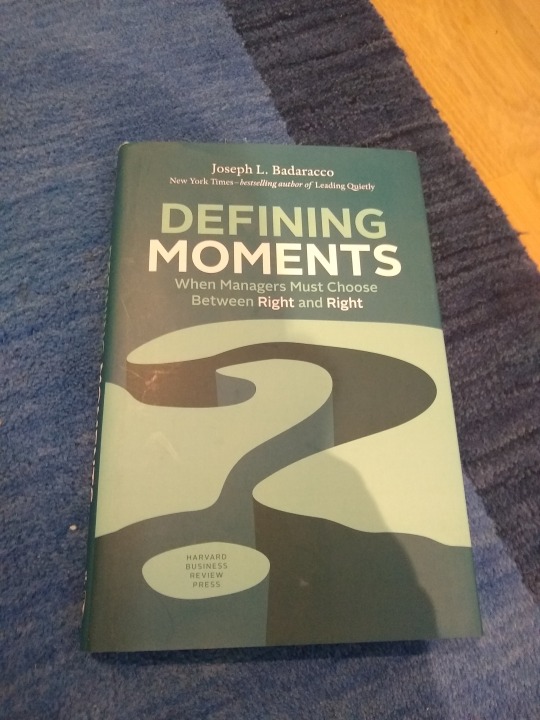
If you want to know more about ethics in business, this short treatise (130 pp) will help you frame situations using specific questions applicable to the ethical decision making process. I could not recommend it more highly. I will give you the 4 questions to ask yourself here (you will have to read the book to understand these in full)
1 how do my feelings and intuition define, for me, the conflict?
2 how deep are the moral roots of the conflicting values that are creating the conflict?
3 What is your [fundamental] way?
4 what will work in the real world?
#ethics#business ethics#decision making#management#mba#business books#harvard business school#character#joseph badaracco#book review
3 notes
·
View notes
Link
0 notes
Photo
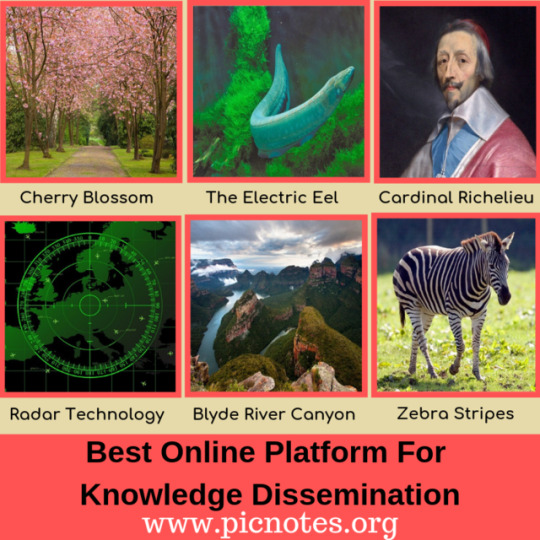
Joseph Badaracco said, “In today's environment, hoarding knowledge ultimately erodes your power. If you know something very important, the way to get power is by actually sharing it.”
Sign-up on our knowledge sharing platform today! https://www.picnotes.org/
#knowledge#knowledgesharing#educational#shareknowledge#lifelonglearner#lifelonglearners#sharingplatform#portfolio#freeknowledge#generalknowledge#educationaltopic#learning
2 notes
·
View notes
Photo
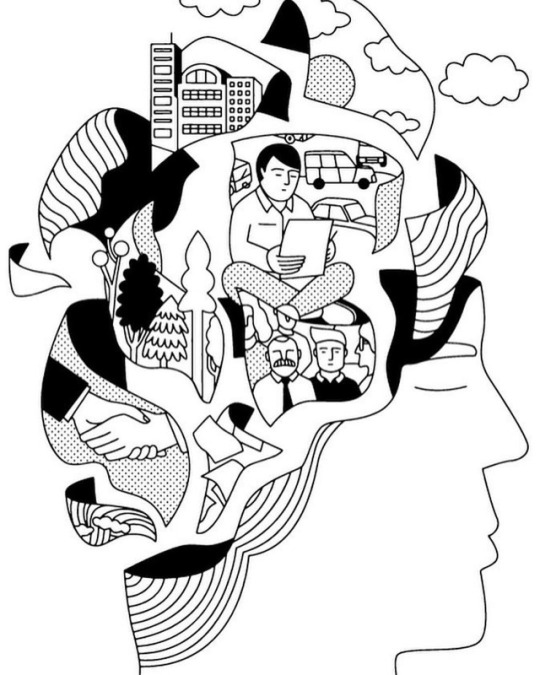
What's the best way to tackle your toughest decisions? When you've gathered all the facts you can, but still don’t know what to do? @harvardhbs professor Joseph Badaracco says answering 5 questions can help you make a sound judgment: 1) What are the net, net consequences of all my options? 2) What are my core obligations? 3) What will work in the world as it is? 4) Who are we? 5) What can I live with?. • www.GoLcs.com (Link in Bio) • Do you want to grow your business but don't know which growth strategies you should adopt? Here are the tried and true ways of growing your business: USA Business Directory: . www.GoLcs.com . Add your business information to the USA Business Directory We help more Customers find your Business. we understand how to help you increase your Revenue, Lower your Cost and Grow your business. Establish Your Brand & Engage New Customers With USA Business Directory . Try It Today! & grow your business, Revenue & sales • • • #smallbusiness #businessowners #businessowner #businessman #businesswomen #smallbusinessowner #DigitalMarketing #socialmedia #marketing #socialmediamarketing #localbusiness #smallbusinessowners #businessdirectory #businesslisting #entrepreneur #businesslife (at Los Angeles, California) https://www.instagram.com/usa.business.directory/p/Bv994dMF39j/?utm_source=ig_tumblr_share&igshid=m083qn91zqi9
#smallbusiness#businessowners#businessowner#businessman#businesswomen#smallbusinessowner#digitalmarketing#socialmedia#marketing#socialmediamarketing#localbusiness#smallbusinessowners#businessdirectory#businesslisting#entrepreneur#businesslife
1 note
·
View note
Text
Download Book PDF Defining Moments: When Managers Must Choose Between Right and Right - Joseph L. Badaracco Jr.
0 notes
Text
Download (PDF) Defining Moments: When Managers Must Choose Between Right and Right - Joseph L. Badaracco Jr.
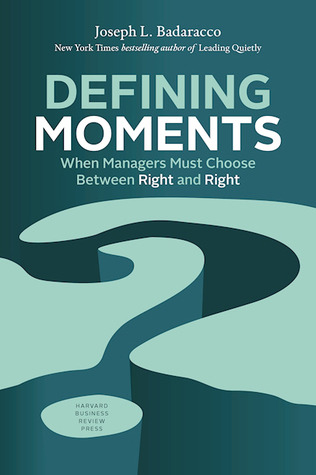
Read/Download Visit : https://tt.kindleebs.xyz/?book=1633692396
Book Synopsis :
When Business and Personal Values Collide?Defining moments? occur when managers face business decisions that trigger conflicts with their personal values. These moments test a person?s commitment to those values and ultimately shape their character. But these are also the decisions that can make or break a career. Is there a thoughtful, yet pragmatic, way to make the right choice?Bestselling author Joseph Badaracco shows how to approach these dilemmas using three case examples that, when taken together, represent the escalating responsibilities and personal tests managers face as they advance in their careers. The first story presents a young manager whose choice will affect him only as an individual; the second, a department head whose decision will influence his organization; the third, a corporate executive whose actions will have much larger, societal ramifications. To guide the decision-making process, the book draws on the insights of four philosophers?Aristotle, Machiavelli,
0 notes
Text
10 top business school books assigned by ivy league MBAs
Source:
https://www.inc.com/jessica-stillman/business-school-mba-ivy-league-books-elon-musk.html
Asking the Right Questions: A Guide to Critical Thinking by M. Neil Browne. This book "helps bridge the gap between simply memorizing or blindly accepting information, and the greater challenge of critical analysis and synthesis," according to Amazon.
Organizational Culture and Leadership by Edgar H. Schein. A classic textbook on, you guessed it, organizational culture and leadership.
Essentials of Organizational Behavior by Stephen P. Robbins. This textbook is now in its 14th edition so you'd figure it must be pretty useful.
The Management of Innovation by G. M. Stalker and Tom Burns. Published in 1961, this is "one of the most influential books about business organizations ever," Amazon claims.
Business Finance: Theory and Practice by Eddie McLaney. Save yourself even more by checking the older editions of this one -- the price drops from $75 to $3.
A Theory of Human Motivation by A. H. Maslow. Heard of "Maslow's Hierarchy of Needs"? This is where the idea comes from.
Critical Analysis of Organizations: Theory, Practice, Revitalization by Catherine Casey. This doesn't look like a light read at all but it tackles an interesting theme: new, critical takes on the subject of organizations and how people behave within them.
Defining Moments: When Managers Must Choose Between Right and Right by Joseph Badaracco. A discussion of navigating those moments when your business and values are in conflict.
Business Intelligence and Analytics: Systems for Decision Support by Efraim Turban. "The only comprehensive, up-to-date guide to today's revolutionary management support system technologies," says Amazon.
Corporate Finance by Jeffrey F. Jaffe, Stephen A. Ross, Randolph Westerfield. Another classic textbook, now in its eleventh edition.
0 notes
Photo

“In today's environment, hoarding knowledge ultimately erodes your power. If you know something very important, the way to get power is by actually sharing it.” ― Joseph Badaracco. #stayintercultural #turkey #ankara #friends #sport #friendship #knowledge (at Ata Sporları Vakfı) https://www.instagram.com/p/B0ixVr9A0KO/?igshid=etin8kfdpoy9
0 notes
Text
Podcast #325: Leading Quietly
When we think of being a good leader, we often think we need to be a bold, visionary, risk-taking type like Winston Churchill, Theodore Roosevelt, or Steve Jobs. But my guest today argues that most of the day-to-day work that makes the world function is done by individuals who stand outside the limelight and lead with calm confidence. His name is Joseph Badaracco and he’s the author of the book Leading Quietly: An Unorthodox Guide to Doing the Right Thing. Today on the show, Joe and I discuss the heroic archetype of leadership, why most leadership development books and courses focus on it, and why heroic leadership can actually get in the way of an organization’s success. He then shares the qualities of a quiet leader and why they’re often more effective than heroic leaders at getting things done in an organization. We end our conversation by exploring the Aristotelian approach to leadership that most quiet leaders utilize and how you can start using those same principles today in your work, community, and family. Show Highlights * Why do we see leaders as heroic, on-the-front-lines types of people? * How can heroic leadership get in the way of progress? * How quiet leaders are different from heroic leaders * The scenarios in which quiet leadership is the better model, and vice versa * The importance of pragmatic realism in leadership, and how to build that skill * How to remain realistic without falling into cynicism * The myth of the angelic motives of quiet leaders and why it’s okay to be selfish with your career * Why honing your managerial — that is, quiet — skills is important * Lincoln’s creative political maneuver that displayed quiet leadership * Why everyone should know the value of compromise, and how to do it * The role of rule-bending and flexibility in leadership * The 3 quiet virtues of leadership Resources/People/Articles Mentioned in Podcast * The Essential Qualities of Leadership * Podcast: How Leaders Build Great Teams * 5 Traits of True Leadership * Want People to Hear Your Message? Let Them Overhear It * Quit Being a Pushover: How to Be Assertive * Black letter law * Elon Musk by Ashlee Vance Leading Quietly is one of the most practical and nuanced on books on leadership I’ve read. I’ve applied several of the principles in the book to my own life and have seen immediate results. Listen to the Podcast! (And don’t forget to leave us a review!) Listen to the episode on a separate page. Download this episode. Subscribe to the podcast in the media player of your choice. Podcast Sponsors The Art of Manliness Store. Check out our new products, like the Stay Manly mug, and take 10% off your first order by using “AOMPODCAST” at checkout. Proper Cloth. Stop wearing shirts that don’t fit. Start looking your best with a custom fitted shirt. Go to propercloth.com/MANLINESS and enter gift code MANLINESS to save $20 on your first shirt. SimpliSafe. The smarter way to protect your home. No long-term contracts, wireless and portable, and just $15/month. Get $100 off the special Safeguard package when you go to SimpliSafe.com/listen. Read the Transcript Coming soon! The post Podcast #325: Leading Quietly appeared first on The Art of Manliness. http://dlvr.it/PZ0cgm
3 notes
·
View notes
Text
HAPPINESS HACKS & THE SCIENCE AND STUDIES BEHIND THEM!!! Tal Ben-Shahar | Health | Inspiration | Self-Help | Inspire
If you’ve ever wanted to have more happiness in your life, then do we have the Shortcuts to Happiness show for you! then do we have the Happier show for you.
Today I’ll be talking with Tal Ben-Shahar former Harvard Professor who taught the largest course at Harvard “Positive Psychology” and one of the leading Happiness experts in the world. He’s also the author of several fantastic books on Happiness including Choose the Life You Want, Happier, and his latest couture, Short Cuts to Happiness.
And that’s just what I want to talk with him about today, about life changing lessons, he learned from his barber!
Shortcuts to Happiness Self-Improvement & Self-Help Topics Include:
What has Tal Ben-Shahar a leading researcher on happiness been looking into lately?
What can we learn from our barbers about happiness?
What’s the importance of “others” when it comes to happiness?
What’s the importance of relationships?
What’s the importance of “touch” for our health and happiness?
What we can learn from Temple Grandin?
What are the potential benefits of children from hardship?
What can we learn from Maria Montessori about childhood struggles?
How do we increase the resilience in our children?
Why failure is so important for our children?
What’s wrong with focusing on a child’s grades?
What do the studies show about our focus (with kids) and happiness?
What the studies show about money buying happiness?
What’s the science behind sitting up straight, and what it does for our happiness?
How do we make the best decisions for our happiness?
What can we learn from Professor Joseph Badaracco about right decisions?
What’s the importance of shifting from self-focus to other-focus?
What can we learn from the studies about shifting perspective and anger management?
What’s the importance of focusing on praising effort with children and mindset expert Carol Dweck?
For More Info Visit: TalBenShahar.com
Tal Ben-Shahar on Shortcuts to Happiness & the Science and Studies Behind Them! Law of Attraction | Health | Fitness | Inspiration | Spiritual | Spirituality | Guided Meditation | Inspirational | Motivational | Self-Improvement | Self-Help | Love
For More Info Visit: www.InspireNationShow.com
Check out this episode!
0 notes
Text
Why Does the New Economy of Knowledge Sharing Matter?
“In today’s environment, hoarding knowledge ultimately erodes your power. If you know something very important, the way to get power is by actually sharing it.” — Joseph Badaracco
The Fourth Industrial Revolution
Historically, our society has undergone paramount technological changes in three industrial revolutions:
1st Industrial revolution – 1765: mechanization;
2nd Industrial revolution – 1870: mass production;
3rd Industrial revolution – 1969: automation
Today, technology is already changing our lives. Drones deliver goods, Siri helps with booking the newest restaurants, shops operate without cashiers via contactless payment solutions — and these are just a few examples that immediately spring to mind.
Right now, we’re standing at the edge of a new global development spiral. This spiral began in the 2010s and is being called the “4th Industrial Revolution,” or “Industry 4.0.”
The Fourth Industrial Revolution, finally, will change not only what we do but also who we are. It will affect our identity and all the issues associated with it: our sense of privacy, our notions of ownership, our consumption patterns, the time we devote to work and leisure, and how we develop our careers, cultivate our skills, meet people, and nurture relationships. — Klaus Schwab, The Fourth Industrial Revolution
The Fourth Industrial Revolution is built on the advancements made after the third one and is dominated by digitization. It can be traced through certain technologies such as artificial intelligence, the internet of things, blockchain, robotics, biotechnologies, quantum computers, and many others.
These technologies are disrupting business models, social interactions, and life in general. Today we’re surrounded by innovation — we live in smart cities, build smart houses, drive smart cars, while catering to our digital profiles and online personas.
New technologies are unleashing new demands in the global job market, as artificial intelligence is in force. Workers not skilled and/or educated enough are at a disadvantage in the new era, as they can be replaced by rapidly developing artificial intelligence and robotics. Thus, the focus is shifting to training, talent development, self-education, and life learning.
According to the “Future of Jobs” — a report issued by the World Economic Forum — 35 percent of core skills will change by 2020, resulting in the following top skills being predicted to dominate the global job market:
Complex problem solving
Critical thinking
Creativity
People management
Coordinating with others
Emotional intelligence
Judgment and decision making
Service orientation
This means, on average, to be successful, an individual will need profound, well-developed social skills — rather than narrow technical skills. Emotional intelligence and expertise are growing in demand.
ASKfm 2.0 is standing on the cutting edge of Industry 4.0, promoting the global idea of a knowledge economy.
From the perspective of knowledge economies, knowledge itself is viewed as an asset which can create economic value. It can be traded and may form capital.
The knowledge economy is possible without technology but combined it gives a synergy effect that can boost any industry. The combination of industrial progress, technological development, and knowledge are the driving forces of this era.
ASKfm 2.0 considers knowledge and information two of the most important assets available to humanity today. In this regard, ASKfm is upgrading its platform. Created back in 2010, ASKfm is standing strong with 215M users and 600 M questions asked, monthly.
ASKfm 2.0 is engineered to help people share knowledge and information — only shared knowledge can be multiplied. By making blockchain an underlining technology, ASKfm 2.0 is democratizing the knowledge economy environment, making it independent and self-regulated.
Knowledge will be tokenized by introducing the ASKT token. Users will be rewarded for content creation and activity performed on the platform with ASKT. Our rewards model will encourage quality content, further proving that knowledge of every individual can be an asset. Token holders will act as market players, supplying and consuming knowledge generated on the platform.
ASKfm 2.0 believes that sharing knowledge correlates with one of the basic trends, introduced by Industry 4.0 – life learning and self-education. The most natural way to find new information is to ask. Not only can you ask your questions and pick out the best answer, with ASKfm 2.0 you can transfer your own knowledge and make it a liquid asset as well.
“Let us together shape a future that works for all by putting people first, empowering them and constantly reminding ourselves that all of these new technologies are first and foremost tools made by people for people.” — Klaus Schwab, The Fourth Industrial Revolution
Powered by technology, ASKfm 2.0 is created to serve people and multiply their wisdom.
What do you think about ASKfm 2.0? Let us know in the comments below!
Images courtesy of Shutterstock, Bitcoinist archives.
The post Why Does the New Economy of Knowledge Sharing Matter? appeared first on Bitcoinist.com.
from Cryptocracken Tumblr https://ift.tt/2lj0kLx
via IFTTT
0 notes
Text
Download Defining Moments: When Managers Must Choose Between Right and Right - Joseph L. Badaracco Jr.
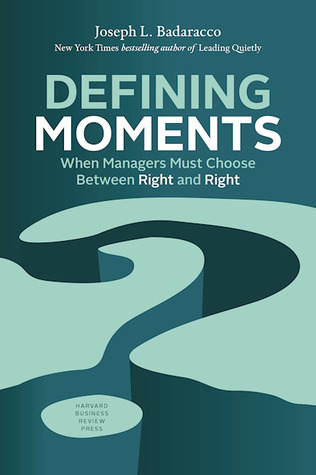
Read/Download Visit : https://tt.ebookbiz.info/?book=1633692396
Book Synopsis :
When Business and Personal Values Collide?Defining moments? occur when managers face business decisions that trigger conflicts with their personal values. These moments test a person?s commitment to those values and ultimately shape their character. But these are also the decisions that can make or break a career. Is there a thoughtful, yet pragmatic, way to make the right choice?Bestselling author Joseph Badaracco shows how to approach these dilemmas using three case examples that, when taken together, represent the escalating responsibilities and personal tests managers face as they advance in their careers. The first story presents a young manager whose choice will affect him only as an individual; the second, a department head whose decision will influence his organization; the third, a corporate executive whose actions will have much larger, societal ramifications. To guide the decision-making process, the book draws on the insights of four philosophers?Aristotle, Machiavelli,
0 notes
Photo
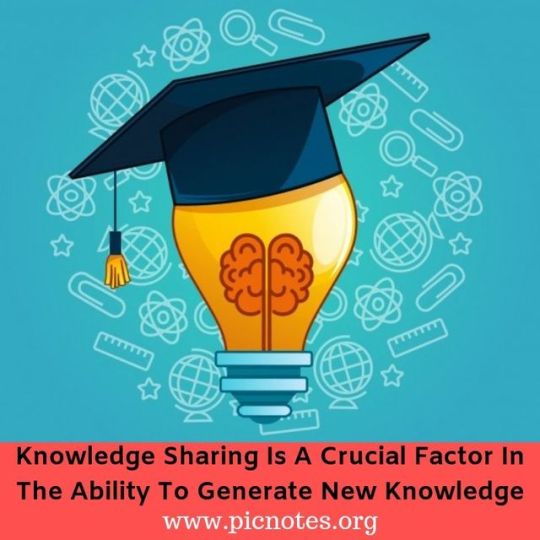
Joseph Badaracco said, “In today's environment, hoarding knowledge ultimately erodes your power. If you know something very important, the way to get power is by actually sharing it.”
Signup on our knowledge sharing platform today! https://www.picnotes.org/
#knowledge#knowledgesharing#educational#shareknowledge#lifelonglearner#lifelonglearners#sharingplatform#portfolio#freeknowledge#generalknowledge#educationaltopic#learning
0 notes
Text
Comparative Book Review: Alexander Hill and Badaracco
Comparative Book Review: Alexander Hill and Badaracco
Comparative Book Review: Alexander Hill and Badaracco
Background: Alexander Hill and Joseph Badaracco both have written guides they hope will help the practitioner act in ethical ways within the practice of leadership in organizations. This said, the two authors take very different approaches. Hill explicitly provides the ground for his ethical perspective, while Badaracco focuses on the…
View On WordPress
0 notes
Text
Best Case Analysis for all the Business Case Studies exclusively on writerkingdom.com written by CFA-MBA-ACCA writers
Simply put us an email at [email protected] or visit http://writerkingdom.com/make-an-order-with-writerkingdom/ to make an order with writerkingdom for listed below or any of your assignment Problems that can be case studies, report writing, research essay, final exam, dissertation, Thesis or any other assignment. Only on writerkingdom.com
Solved Case Analysis: CIRQUE DU SOLEIL Thomas J DeLong Vineeta Vijayaraghavan
Solved Case Analysis: CISCO SYSTEMS INC. MANAGING CORPORATE GROWTH USING AN INTRANET Michael Parent Debra Ran
Solved Case Analysis: Cisco Systems New Millennium New Acquisition Strategy Portuguese by Nir Brueller Laurence Capron
Solved Case Analysis: CISCO SYSTEMS INC IMPLEMENTING ERP
Solved Case Analysis: CITIBANK PERFORMANCE EVALUATION By Robert L Simons Antonio Davila
Solved Case Analysis: Citibank Card Product Group Mark Eaker Andrew C.Boynton
Solved Case Analysis: CITIBANK PERFORMANCE EVALUATION Robert L Simons and Antonio Davila
Solved Case Analysis: Citigroup Inc. Accounting for Loan Loss Reserves by Jacob Cohen David Hawkin Gerald J. Lobo
Solved Case Analysis: Citigroups Exchange Offer C By Robin Greenwood James Quinn
Solved Case Analysis: CitiusNet The Emergence of a Global Electronic Market by Tawfik Jelassi Han Sheong Lai
Solved Case Analysis: Clare College Seeking Investment Opportunity in a Financial Crisis By David Chambers Elroy Dimson Luis M. Viceira
Solved Case Analysis: Claritas Genomics Robert F. Higgins Matthew Preble
Solved Case Analysis: Clarkson Lumber Co. Thomas R. Piper
Solved Case Analysis: CLASSIC PEN COMPANY DEVELOPING AN ABC MODEL By Robert S Kaplan
Solved Case Analysis: Clean Edge Razor Splitting Hairs in Product Positioning John A. Quelch Heather Beckham
Solved Case Analysis: Clean Coal in the U.S and China An Industry Note Robert A.Burgelman Andrew S.Grove Debra Schifrin
Solved Case Analysis: CleanSpritz John A. Quelch and Alisa Zalosh
Solved Case Analysis: CLEANSPRITZ John A Quelch Alisa Zalosh
Solved Case Analysis: Cleveland Clinic Transformation and Growth 2015 Michael E. Porter Elizabeth Olmsted Teisberg
Solved Case Analysis: Cleveland Turnaround B Building on Progress 1989 96 James E.Austin Andrea L.Strimling
Solved Case Analysis: Club Med Japan by Hellmut Schutte
Solved Case Analysis: CO2 Australia The Case for Carbon Credits by George Allayannis Susheel Tenguria
Solved Case Analysis: Coca Cola Residual Income Valuation Suraj Srinivasan Beiting Cheng Edward J. Riedl
Solved Case Analysis: Coke vs. Pepsi 2001 By Robert F. Bruner Jessica Chan
Solved Case Analysis: COLA WARS IN CHINA THE FUTURE IS HERE Niraj Dawar Nancy Dai
Solved Case Analysis: COLA WARS CONTINUE COKE AND PEPSI IN 2010 David B Yoffie Renee Kim
Solved Case Analysis: Cola Wars Continue Coke vs Pepsi in the 1990s David B Yoffie Sharon Foley
Solved Case Analysis: Cola Wars Continue Coke vs Pepsi in the Twenty First Century David B.Yoffie Yusi Wang
Solved Case Analysis: Colgate Palmolive France A by Reinhard Angelmar Francois Canivet
Solved Case Analysis: Colgate Palmolive France B by Reinhard Angelmar Francois Canivet
Solved Case Analysis: Colgate Palmolive France C by Reinhard Angelmar Francois Canivet
Solved Case Analysis: Colt Industries By Robert M. Conroy
Solved Case Analysis: Columbias Final Mission Amy C. Edmondson Kerry Herman
Solved Case Analysis: Comerica Incorporated The Valuation Dilemma by George Allayannis Baijnath Ramraika
Solved Case Analysis: Comerica Incorporated The Valuation Dilemma By Yiorgos Allayannis Baijnath Ramraika
Solved Case Analysis: Coming Era of Brand in the Hand Marketing Fareena Sultan Andrew Rohm
Solved Case Analysis: COMMERCE BANK By Frances X Frei Corey Hajim
Solved Case Analysis: Commerce Bank Frances X. Frei Corey Hajim
Solved Case Analysis: Communispace Anat Keinan
Solved Case Analysis: Compagnie du Froid S. A Robert L. Simons Antonio Davila
Solved Case Analysis: Compagnie Lyonnaise de Transport Michael J. Roberts Michael L. Tushman
Solved Case Analysis: Company Analysis for Danone Harvard and Iveys
Solved Case Analysis: Compass Box Whisky Company By Romana L. Autrey Devin Shanthikumar
Solved Case Analysis: Compass Records
Solved Case Analysis: Competing through EDI at Papeteries Brun Passot Making Paper Passe by Tawfik Jelassi
Solved Case Analysis: Compte Nickel Creating New Demand in the Retail Banking Sector by W. Chan Kim Renee Mauborgne Melanie Pipino
Solved Case Analysis: Computer Reservation Systems An Industry of Its Own Ali F.Farhoomand Andrew Lee
Solved Case Analysis: CONFLICT ON A TRADING FLOOR A By Joseph L Badaracco Jerry Useem
Solved Case Analysis: Conflict on a Trading Floor A by Joseph L. Badaracco Jr. and Jerry Useem Harvard Business School
Solved Case Analysis: CONTINENTAL REALTY LIMITED J. Nick Fry Randy Pepper
Solved Case Analysis: Continental Tires and the Global Tire Industry in 2016 by Karel Cool Laurent De Clara
Solved Case Analysis: Continuous Casting Investments at USX Corp. Clayton M. Christensen
Solved Case Analysis: Cooper Industries Inc. Thomas R. Piper
Solved Case Analysis: Cooper Industries Corporate Strategy A David J.Collis Toby Stuart
Solved Case Analysis: CornerStone Partners by Richard B. Evans Prakash Menon
Solved Case Analysis: Corning Inc. Zero Coupon Convertible Debentures Due November 8 2015 A By Robert F. Bruner Jessica Chan Sean Carr
Solved Case Analysis: Coronet Savings and Loan
Solved Case Analysis: Corporate Governance in Three Economies Germany Japan and the United States By Robert M. Conroy
Solved Case Analysis: Corporate Valuation and Market Multiples Timothy A. Luehrman
Solved Case Analysis: Cost of Capital at Ameritrade Mark Mitchell Erik Stafford
Solved Case Analysis: Costco Wholesale Corp. Financial Statement Analysis Maureen McNichols Brian Tayan
Solved Case Analysis: Costing Systems by G. Deigan Morris
Solved Case Analysis: Coursera Ramon Casadesus Masanell Hyunjin Kim
Solved Case Analysis: Cox Communications Inc. 1999 George Chacko Peter Tufano
Solved Case Analysis: Creating a Marketing Plan An Overview
Solved Case Analysis: Creating a Process Oriented Enterprise at Pinnacle West T.S. Raghu
Solved Case Analysis: Creating Cultural Change in a Swedish Hungarian Joint Venture by Susan C Schneider
Solved Case Analysis: Credit Default Swaps on AMR Corporation Cash or Credit by Pedro Matos Peter Lee
Solved Case Analysis: Credit Unions The Future of the Cooperative Financial Institution Robert C. Pozen Grace Hou
Solved Case Analysis: CRESCENT PURE Best John A Quelch Alisa Zalosh
Solved Case Analysis: Crestor Tim Calkins Joshua Neiman
Solved Case Analysis: Cresud S.A Farmer or Real Estate Developer Ray A Goldberg Arthur I Segel Gustavo A Herrero Andrew Terris
Solved Case Analysis: Crisis at the Mill Weaving an Indian Turnaround Alvarez & Marsal by Claudia Zeisberger Anne Marie Carrick Sankar Krishnan Nikhil Shah
Solved Case Analysis: CRM IMPLEMENTATION FAILURE AT CIGNA CORPORATION By Vivek Gupta M Vinaya Kumar
Solved Case Analysis: Crocs Inc. by Marc L. Lipson Gaurav Gupta
Solved Case Analysis: CROWDFUNDING AT THE BROOKLYN WAREHOUSE Nicola Young Karen Lightstone
Solved Case Analysis: Crown Cork & Seal in 1989 Stephen P.Bradley Sheila Cavanaugh
Solved Case Analysis: CRP PRODUCTS David Wood Robert Klassen
Solved Case Analysis: CULTURE AND LEADERSHIP AT IBM By John Weeks
Solved Case Analysis: CUMBERLAND ENTERTAINMENT A EXPANDING WITH PRIVATE EQUITY By Christoph Zott Abigail Leland
Solved Case Analysis: Currency Crisis in the United Kingdom and Hong Kong by Francis E. Warnock
Solved Case Analysis: Customer Profitability Analysis and Value Based Management at Barclays Bank by Regine Slagmulder Jaeita Mukherjee
Solved Case Analysis: Cutting through the Fog Finding a Future with Fintech by George Allayannis Kayla Cartwright
Solved Case Analysis: CVS Jon Roberts and Josh Flum Video
Solved Case Analysis: Cypress Semiconductor 1.25 Convertible Notes by Robert M. Conroy
Solved Case Analysis: Cypress Semiconductor 1.25 Percent Convertible Notes By Robert M. Conroy
Solved Case Analysis: Dana Hall Funding a Mission F. Warren McFarlan Herman B. Leonard Melissa Tritter
Solved Case Analysis: Danaher Corporation The Hach SL1000 Portable Parallel Water Analyzer by Marc L. Lipson
Solved Case Analysis: Danfoss RC in China A Going Global by Jonathan Story Natasha Lee Evans
Solved Case Analysis: Daniel Dobbins Distillery Inc.William J. Bruns Jr.
Solved Case Analysis: Danville Airlines Andrew Wicks Jenny Mead
Solved Case Analysis: Dardens Luckiest Student 2008 by Phillip E. Pfeifer Samuel E. Bodily
Solved Case Analysis: Dashman Co. Richard S. Meriam Franklin E. Folts George F.F. Lombard
Solved Case Analysis: DAVE ARMSTRONG A George Wu
0 notes
Text
Why Does the New Economy of Knowledge Sharing Matter?
New Post has been published on https://cryptnus.com/2018/06/why-does-the-new-economy-of-knowledge-sharing-matter/
Why Does the New Economy of Knowledge Sharing Matter?
Bitcoinist.net · June 18, 2018 · 5:00 pm
“In today’s environment, hoarding knowledge ultimately erodes your power. If you know something very important, the way to get power is by actually sharing it.” — Joseph Badaracco
The Fourth Industrial Revolution
Historically, our society has undergone paramount technological changes in three industrial revolutions:
1st Industrial revolution – 1765: mechanization;
2nd Industrial revolution – 1870: mass production;
3rd Industrial revolution – 1969: automation
Today, technology is already changing our lives. Drones deliver goods, Siri helps with booking the newest restaurants, shops operate without cashiers via contactless payment solutions — and these are just a few examples that immediately spring to mind.
Right now, we’re standing at the edge of a new global development spiral. This spiral began in the 2010s and is being called the “4th Industrial Revolution,” or “Industry 4.0.”
The Fourth Industrial Revolution, finally, will change not only what we do but also who we are. It will affect our identity and all the issues associated with it: our sense of privacy, our notions of ownership, our consumption patterns, the time we devote to work and leisure, and how we develop our careers, cultivate our skills, meet people, and nurture relationships. — Klaus Schwab, The Fourth Industrial Revolution
The Fourth Industrial Revolution is built on the advancements made after the third one and is dominated by digitization. It can be traced through certain technologies such as artificial intelligence, the internet of things, blockchain, robotics, biotechnologies, quantum computers, and many others.
These technologies are disrupting business models, social interactions, and life in general. Today we’re surrounded by innovation — we live in smart cities, build smart houses, drive smart cars, while catering to our digital profiles and online personas.
New technologies are unleashing new demands in the global job market, as artificial intelligence is in force. Workers not skilled and/or educated enough are at a disadvantage in the new era, as they can be replaced by rapidly developing artificial intelligence and robotics. Thus, the focus is shifting to training, talent development, self-education, and life learning.
According to the “Future of Jobs” — a report issued by the World Economic Forum — 35 percent of core skills will change by 2020, resulting in the following top skills being predicted to dominate the global job market:
Complex problem solving
Critical thinking
Creativity
People management
Coordinating with others
Emotional intelligence
Judgment and decision making
Service orientation
This means, on average, to be successful, an individual will need profound, well-developed social skills — rather than narrow technical skills. Emotional intelligence and expertise are growing in demand.
ASKfm 2.0 is standing on the cutting edge of Industry 4.0, promoting the global idea of a knowledge economy.
From the perspective of knowledge economies, knowledge itself is viewed as an asset which can create economic value. It can be traded and may form capital.
The knowledge economy is possible without technology but combined it gives a synergy effect that can boost any industry. The combination of industrial progress, technological development, and knowledge are the driving forces of this era.
ASKfm 2.0 considers knowledge and information two of the most important assets available to humanity today. In this regard, ASKfm is upgrading its platform. Created back in 2010, ASKfm is standing strong with 215M users and 600 M questions asked, monthly.
ASKfm 2.0 is engineered to help people share knowledge and information — only shared knowledge can be multiplied. By making blockchain an underlining technology, ASKfm 2.0 is democratizing the knowledge economy environment, making it independent and self-regulated.
Knowledge will be tokenized by introducing the ASKT token. Users will be rewarded for content creation and activity performed on the platform with ASKT. Our rewards model will encourage quality content, further proving that knowledge of every individual can be an asset. Token holders will act as market players, supplying and consuming knowledge generated on the platform.
ASKfm 2.0 believes that sharing knowledge correlates with one of the basic trends, introduced by Industry 4.0 – life learning and self-education. The most natural way to find new information is to ask. Not only can you ask your questions and pick out the best answer, with ASKfm 2.0 you can transfer your own knowledge and make it a liquid asset as well.
“Let us together shape a future that works for all by putting people first, empowering them and constantly reminding ourselves that all of these new technologies are first and foremost tools made by people for people.” — Klaus Schwab, The Fourth Industrial Revolution
Powered by technology, ASKfm 2.0 is created to serve people and multiply their wisdom.
What do you think about ASKfm 2.0? Let us know in the comments below!
Images courtesy of Shutterstock, Bitcoinist archives.
ASKfm 2.0ASKTEconomyknowledgesharing Show comments
0 notes